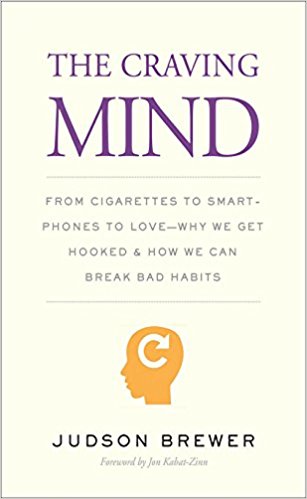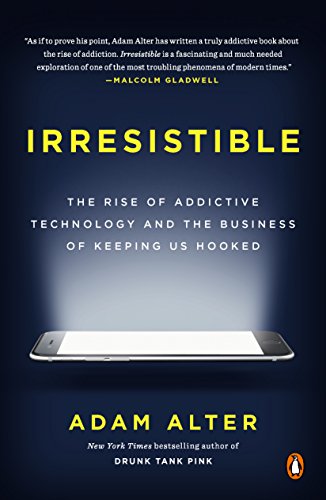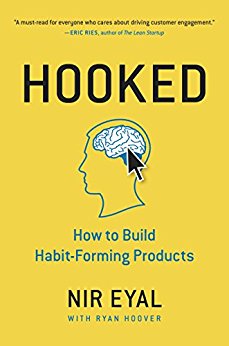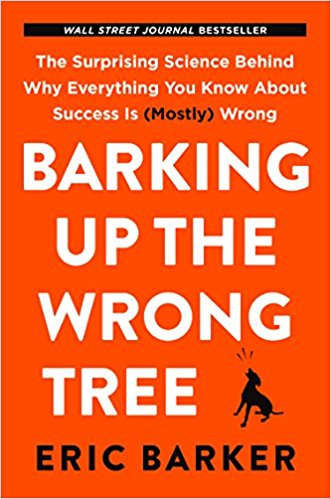5 Fascinating Books On How To Break Bad Habits
.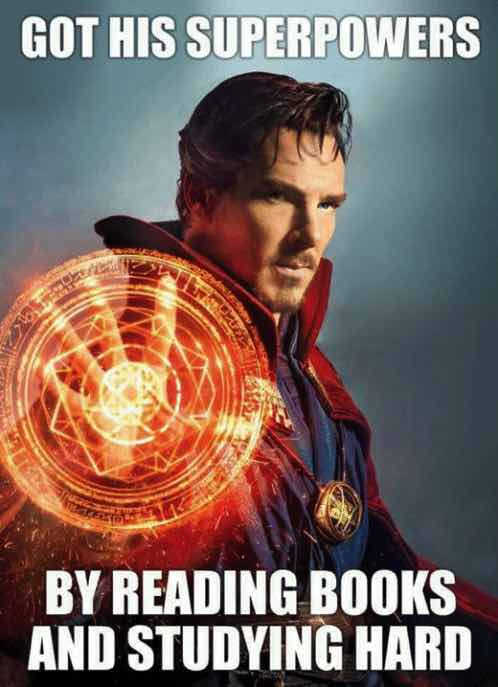
***
Before we commence with the festivities, I wanted to thank everyone for helping my first book become a Wall Street Journal bestseller. To check it out, click here.
***
Psychological research shows people overestimate themselves in nearly every arena — including modesty. Which raises an interesting question… What’s the one thing almost everyone will cop to being utterly dismal at?
Self-control.
From Willpower: Rediscovering the Greatest Human Strength:
Ask people to name their greatest personal strengths, and they’ll often credit themselves with honesty, kindness, humor, creativity, bravery, and other virtues—even modesty. But not self-control. It came in dead last among the virtues being studied by researchers who have surveyed more than one million people around the world. Of the two dozen “character strengths” listed in the researchers’ questionnaire, self-control was the one that people were least likely to recognize in themselves. Conversely, when people were asked about their failings, a lack of self-control was at the top of the list.
I’ve posted about breaking bad habits numerous times but somehow we have not all been miraciously cured of procrastination, overeating, and wasting time on the internet. (I gave it my best shot, mom, I swear.)
As much as it pains me to say, sometimes a mere blog post just won’t cut it. Sometimes we need to go deeper because curated tidbits aren’t a miracle cure to problems that have plagued your happiness and productivity for years. Go figure. So we have to break out the big guns…
And actually read some books. Yes, they still make those. (Some silly people even spend years of their life writing them.)
Well, I read them. A lot of them. And you can benefit from my excessive Kindle expenditures. So when it comes to breaking bad habits, which books are worth your time? Are based on legit evidence? Actually help? And won’t bore you to tears?
You have come to the right corner of the internet, my friend…
Let’s look at 5 books that will teach you how habits work, why your brain won’t do the “right” thing, how to address these issues, and how to defeat the dark forces that are actively working against your best intentions.
Okay, time to break things. Let’s get to it…
1) The Power Of Habit
You’ve probably heard of this one. And there’s a very good reason for that. It’s solid, thorough, and written by Pulitzer Prize-winning New York Times reporter Charles Duhigg.
He cites a Duke study showing a full 40% of your daily choices aren’t choices — they’re habits. You’re on autopilot for nearly half the day. So if your habits are bad, you’re basically a robot programmed to run around screwing your life up.
So you need to understand how bad habits work, how to snap out of the loop, and how to get yourself happily addicted to better habits.
The primary secret Duhigg focuses on? Replacement. As you well know, habits are really hard to break. So don’t. Keep the habit, but replace the troublesome part at the end where you do something not-so-good. And Duhigg clearly and enjoyably walks you through how to do that.
If you read one book on habits, this is the one.
Check it out here.
Alright, learning the ins and outs of bad habits is great but when we’ve engaged in them long enough — and repeatedly tried and failed to overcome them — an understandable question arises: What the hell is wrong with me?
Here’s an answer that’s a lot cheaper than therapy…
2) Willpower
How does willpower work? And why don’t we seem to have any?
Don’t worry; you’re not broken. Research shows we all spend a quarter of our day resisting desires – and fail half the time.
But with a deeper understanding of how willpower really works we can make simple changes in our lives that better align our actions with our hopes and dreams. An example?
One study shows you can increase willpower with a mirror. Yup, a mirror. When we can see ourselves, we naturally compare who we are with who we should be. And that makes us act in ways more consistent with our values.
Top researcher Roy Baumeister and acclaimed science writer John Tierney deliver a book chock full of eye-opening research and excellent insights that explains why we do what we do — and how we can do better.
Check it out here.
But some people will still be skeptical. They’ve lost the battle against willpower for decades and feel their bad habits would make Keith Richards blush.
They’ll insist that they can only overcome their self-control issues with secrets culled from ancient tomes and fine tuned by bleeding edge neuroscience. So do you have anything like that to recommend, Mr. Fancy-Pants-Blogger-Man?
Actually, I do…
3) The Craving Mind
You will not have to rely on teeth-gritting willpower. Nor will you have to replace your bad habits as Duhigg recommends. But you will need to learn about your brain and maybe even meditate.
Judson Brewer, MD, PhD, explains a method that combines neuroscience research with mindfulness practices to devastate your naughty impulses.
But does such a trendy-sounding method really work? In a controlled study, Brewer’s approach went head to head with the leading technique for helping people quit smoking. His system didn’t just win — it was twice as effective in getting people to give up cigarettes.
And learning mindfulness doesn’t just help you ditch bad habits. It also has other tiny side effects like “increasing happiness” and “making this godforsaken world tolerable.”
Check it out here.
So far we’ve been hitting the bad habit bug with broad spectrum antibiotics. What about being more targeted toward some of the most common addictions we’re all dealing with these days?
4) Irresistible
46% of study subjects said they’d rather suffer a broken bone than a broken phone. 70% of office emails are checked within six seconds of arrival.
Our robot overlords have already arrived, were warmly welcomed, and are now safely ensconced in our pockets. And out-and-out quitting this bad habit isn’t an option. We need to manage it because our work and personal lives demand we stay connected.
But NYU professor Adam Alter leverages the research to show us how to find harmony with our devices and take back control.
Check it out here.
Now beating technological habits can be particularly difficult because we’re not merely fighting our impulses. There’s an active enemy in this war. Many companies are deliberately trying to make their services more addictive. How do you overcome an opponent who is working hard to thwart your noble efforts?
By reading their playbook, of course…
5) Hooked
No, this is not a digital Necronomicon that uses the dark arts to ensnare the minds of your children. It’s a finely crafted book that answers the question: What is it that makes Facebook and Instagram so addictive?
Nir Eyal, who teaches courses on applied consumer psychology at the Stanford Graduate School of Business, explains what makes products and apps so “sticky.” (And Nir is not evil, by the way. In fact, he’s one of the nicest people I’ve ever met.)
By learning what it is that hooks you, you can better understand what you need to do to break free.
Check it out here.
Alright, we’ve learned a lot. Let’s round it up and find out about a book that can help us decide what we should be doing once we’ve freed up that time previously spent on bad habits…
Sum Up
Here are 5 fascinating books on how to break bad habits:
- The Power of Habit: How bad habits work and how to replace them so you can get to work.
- Willpower: How to potty train your brain so you stop pooping all over your goals.
- The Craving Mind: No, it’s not “The Craven Mind.” That’s my forthcoming autobiography. This one beats bad habits with the Iron Man/Doctor Strange team-up of science and mindfulness.
- Irresistible: The best way to stop checking your phone (that doesn’t involve throwing it in a river.)
- Hooked: Know thy enemy. Learn the dark arts being used against you to better resist their Cthulhu magic.
Georgetown professor and productivity guru Cal Newport says that clearing the decks of your unproductive habits isn’t enough. Stopping the bad doesn’t magically make you start doing the good — if you even know what the “good” is.
Nature abhors a vacuum (and so do most house cats.) So what’s a book that can show you what we should be doing in order to achieve our goals?
Yeah, I wrote it. But don’t let that talk you out of giving it a read…
Often when we have more time we just waste it — or spend it in less-than-optimal ways. I went through gobs and gobs of research to dispel the myths about success and get the real answers to what we need to be doing to get where we wanna go in our careers and personal lives.
Check it out here.
Habits deserve the deep dive we can only get from reading full books. As that study showed, 40% of your choices aren’t choices; they’re habits. So nearly half the time, your habits make your choices for you.
And that’s why getting rid of bad habits and starting good ones is so critical. As the old saying goes:
We all make choices. But in the end, our choices make us.
Join over 320,000 readers. Get a free weekly update via email here.
Related posts:
New Neuroscience Reveals 4 Rituals That Will Make You Happy
New Harvard Research Reveals A Fun Way To Be More Successful
How To Get People To Like You: 7 Ways From An FBI Behavior Expert


